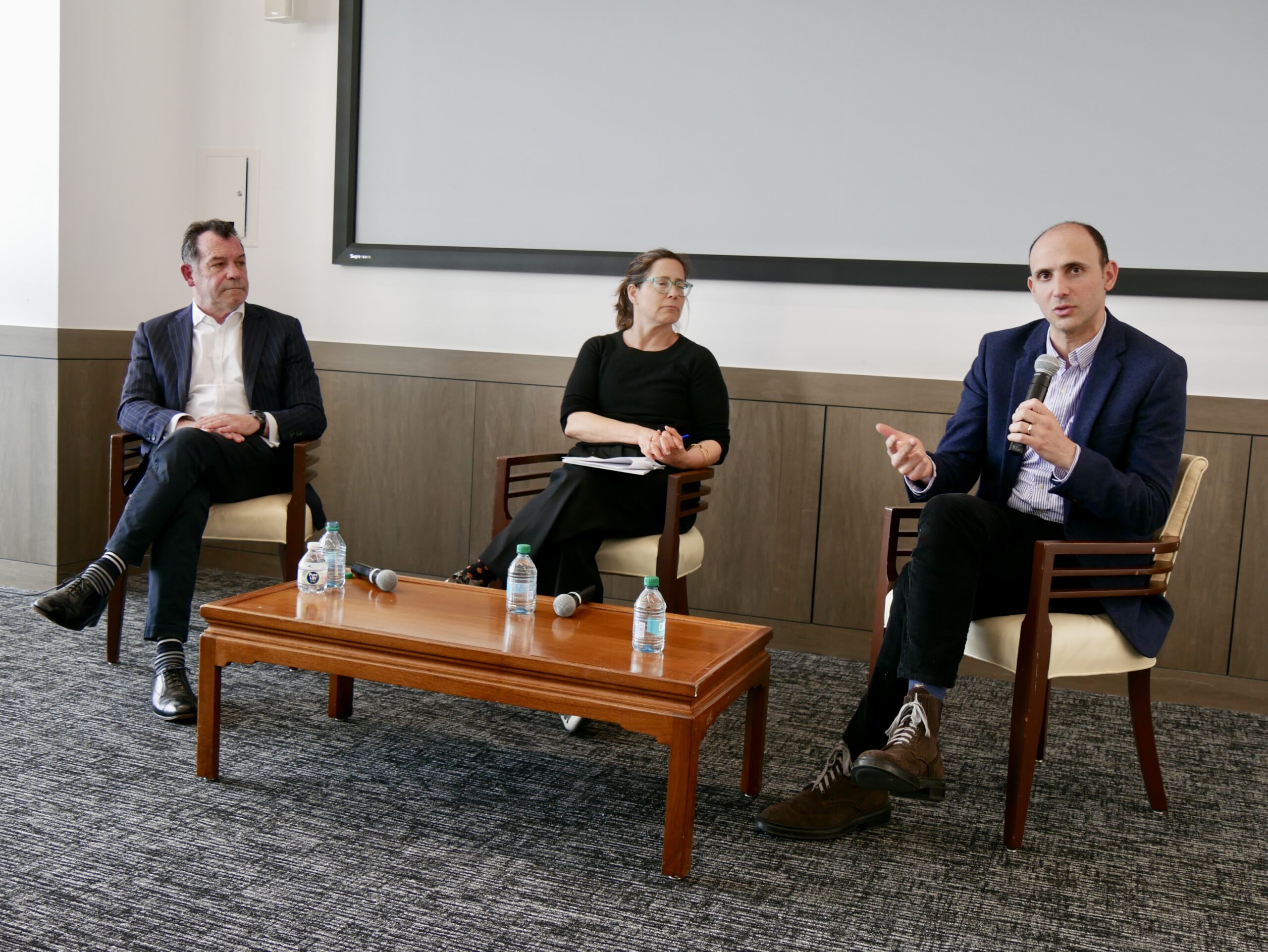Scholars Apply Historic Lessons to Today’s Middle East Conflicts at UC Law SF Stevens Symposium

Professors Peter Bartu, Moria Paz, and Daniel Zoughbie discuss lessons from past conflicts—including Libya, Gaza, and postwar Europe—and how international law and diplomacy can shape a more stable future for the Middle East.
Three international law and diplomacy scholars gathered at UC Law San Francisco in April to explore how lessons from past conflicts can inform today’s efforts to promote peace in the Middle East and North Africa.
Professors Peter Bartu and Daniel Zoughbie of UC Berkeley joined Professor Moria Paz of UC Law SF for “Conversations That Matter: A Consideration of the History, Current Events and Path Forward for the People of the Middle East and North Africa.”
Their discussion was for the UC Law SF’s Ambassador J. Christopher Stevens ’89 Memorial Symposium, honoring the legacy of the widely respected diplomat who lost his life while serving as U.S. ambassador to Libya in 2012.
Bartu shared insights from his work as a UN advisor during the 2003 Israel-Palestine ceasefire talks and as a mediator in Libya’s 2011 revolution. He highlighted critical postwar missteps in Libya—like sidelining experienced officials and a lack of fiscal oversight—that offer lessons for Syria’s current transition.
Zoughbie emphasized the “lost art of diplomacy and statecraft,” arguing that policies isolating Hamas worsened conditions in Gaza, making it ripe for fomenting extremism. He contrasted this with the success of the post-WWII Marshall Plan, which helped stabilize Europe through economic rebuilding.
Paz reflected on the importance of the event and the expertise her fellow panelists brought to the table.
“We were incredibly fortunate to have Professors Bartu and Zoughbie join us for this timely and essential conversation,” she said. “Professor Bartu brought a wealth of on-the-ground experience, offering rare insight into how policy is translated into practice amid real-world complexities. Professor Zoughbie introduced a public health perspective that opened up a fresh and thought-provoking lens for thinking about the region. Their combined insights could not have come at a more critical time, given current developments in the Middle East.”